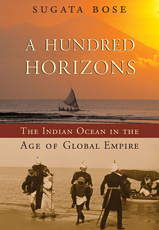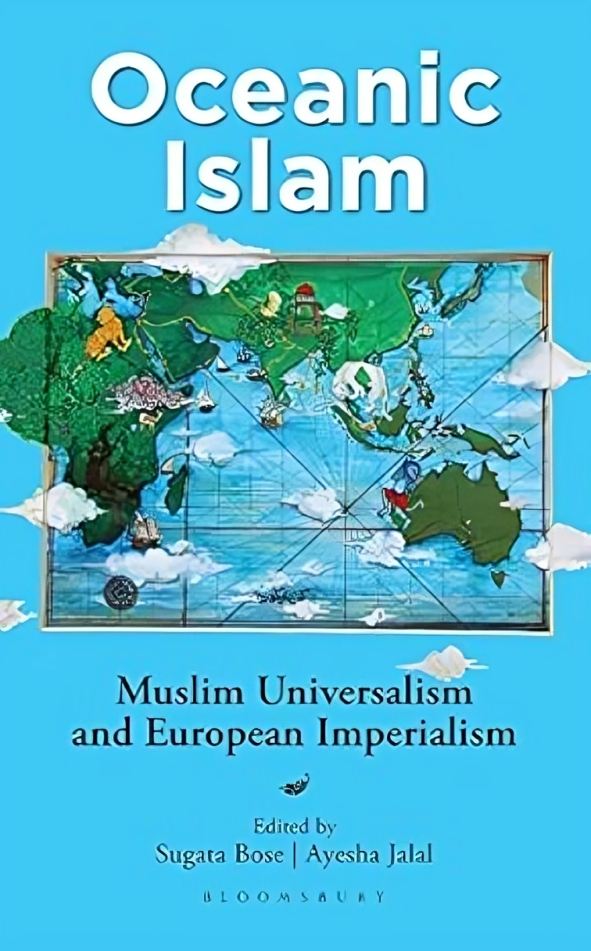
A concise new history of a century of struggles to define Asian identity and express alternatives to European forms of universalism.
The balance of global power changed profoundly over the course of the twentieth century, above all with the economic and political rise of Asia. Asia after Europe is a bold new interpretation of the period, focusing on the conflicting and overlapping ways in which Asians have conceived their bonds and their roles in the world. Tracking the circulation of ideas and people across colonial and national borders, Sugata Bose explores developments in Asian thought, art, and politics that defied Euro-American models and defined Asianness as a locus of solidarity for all humanity.
Impressive in scale, yet driven by the stories of fascinating and influential individuals, Asia after Europe examines early intimations of Asian solidarity and universalism preceding Japan’s victory over Russia in 1905; the revolutionary collaborations of the First World War and its aftermath, when Asian universalism took shape alongside Wilsonian internationalism and Bolshevism; the impact of the Great Depression and Second World War on the idea of Asia; and the persistence of forms of Asian universalism in the postwar period, despite the consolidation of postcolonial nation-states on a European model.
Diverse Asian universalisms were forged and fractured through phases of poverty and prosperity, among elites and common people, throughout the span of the twentieth century. Noting the endurance of nationalist rivalries, often tied to religious exclusion and violence, Bose concludes with reflections on the continuing potential of political thought beyond European definitions of reason, nation, and identity.
The Nation As Mother And Other Visions Of Nationhood
“History matters in contemporary debates on nationalism,’ Sugata Bose contends in The Nation as Mother. In this interconnected set of deeply researched and…
In this classic biography of the revered Indian nationalist Subhas Chandra Bose, popularly known as Netaji (“leader”), Sugata Bose explores…
In this classic biography of the revered Indian nationalist Subhas Chandra Bose, popularly known as Netaji (“leader”), Sugata Bose explores a charismatic personality whose life encapsulated the contradictions of twentieth-century history. Netaji struggled all his life to liberate his people from British rule and, in pursuit of that goal, led the Indian National Army against Allied Forces during World War II. The author brilliantly evokes Netaji’s formation in the intellectual milieu of Calcutta and Cambridge and analyzes his ascent to the peak of nationalist politics. Amid riveting accounts of imprisonment and travels, we discern the true aim of his life’s work: to unite Hindu and Muslim, men and women, and diverse linguistic groups within a single independent Indian nation. The book concludes with an authoritative account of Netaji’s untimely death in a plane crash, putting to rest rumors about the fate of this “deathless hero.”

On December 26, 2004, giant tsunami waves destroyed communities around the Indian Ocean, from Indonesia to Kenya. Beyond the horrific death…
Between 1850 and 1950, the Indian Ocean teemed with people, commodities, and ideas: pilgrims and armies, commerce and labor, the politics of Mahatma Gandhi and the poetry of Rabindranath Tagore were all linked in surprising ways. Sugata Bose finds in these intricate social and economic webs evidence of the interdependence of the peoples of the lands beyond the horizon, from the Middle East to East Africa to Southeast Asia. In following this narrative, we discover that our usual ways of looking at history—through the lens of nationalism or globalization—are not adequate. The national ideal did not simply give way to inevitable globalization in the late twentieth century, as is often supposed; Bose reveals instead the vital importance of an intermediate historical space, where interregional geographic entities like the Indian Ocean rim foster nationalist identities and goals yet simultaneously facilitate interaction among communities. ‘A Hundred Horizons’ merges statistics and myth, history and poetry, in a remarkable reconstruction of how a region’s culture, economy, politics, and imagination are woven together in time and place.
Praised for its “unusual breadth and ambition” in the Journal of Interdisciplinary History, Kumkum Chatterjee believes the book’s “most powerful idea” is that the “territorially delimited nation-state may not necessarily be the most relevant or appropriate entity for a better and more comprehensive understanding of nationalist identity and imagination. Bose seeks to show how Indian soldiers serving overseas, or Indian labor serving in the mines and plantations outside India, imagined and perceived an Indian homeland. Particularly interesting is the discussion of how the two iconic figures of Indian nationalism, Gandhi and Bose, during their stays in South Africa and Southeast Asia, respectively, derived valuable lessons about how to accommodate “internal” differences of caste, religion, class, etc. within anticolonial, nationalist movements.”
David Arnold in The Times Literary Supplement finds the book “timely” and “thought-provoking”, Martin Lewis in the Geographical Review calls it “an empirically rich work based on a careful and creative use of primary sources” with the writing “crisp and accessible… The author couches his arguments in social theory, but does so in a graciously understated way.”
Published by Permanent Black in India and Harvard University Press in the rest of the world in 2006; paperback in 2009.

Peasant Labour and Colonial Capital, a volume in ‘The New Cambridge History of India’
This book is a critical work of synthesis and interpretation on one of the central themes in modern Indian history – agrarian change under British colonial rule. Sugata Bose analyses the relationships between demography, commercialization, class structure and peasant resistance unfolding over the long term between 1770 and more recent times.
Agrarian Bengal: Economy, Social Structure and Politics, 1919-1947
Sugata Bose develops a general typology of systems of agrarian production in Bengal to show how these responded to different types of pressure from the world economy, and treats in detail the effects of the world Depression on Bengal.
Separate chapters are devoted to the themes of agrarian conflict and religious strife in east Bengal, the agrarian dimension of mass nationalism in west Bengal and sharecroppers agitations in the frontier regions. The conclusion attempts a synthesis of the typology of agrarian social structure and the periodisation of peasant politics, placing this in the wider context of agrarian societies and protest in other parts of India and in South-east Asia. As well as being an outstanding contribution to Indian economic and social history, this book draws important conclusions about peasant politics in general and about the effects of international economic fluctuations on primary producing countries.
Published by Cambridge University Press in 1986; Indian edition by Orient Longman. Excerpts have been translated into Bengali in Sugata Bose, Andre Beteille and Binay Bhusan Chaudhuri, Banglar Krishi Samajer Garan (Delhi: International Council of Bengal Studies, and Calcutta: K.P. Bagchi, 1995)

Nationalism, Democracy and Development: State and Politics in India, joint editor with Ayesha Jalal
This volume examines issues of history and political economy that are central to the problems of nationalism, democracy, and development.
The contributors, including Amartya Sen and Pranab Bardhan, question the dichotomy between secular nationalism and religious communalism and take issue with cultural critiques of modernity and nationalism.
Published by Oxford University Press in1997; eighth impression in 2009.
The collection reveals a very different Tagore from the one the West has come to know, bringing to light a passionate poet who celebrated the wonders of this earth instead of just pondering the mysteries of the other world and whose irrepressible love of life was tinged with an acute awareness of its inexorable limits and tragedies. This beautifully boxed collection includes an audio CD of Tagore songs and recitations both in English and Bengali. Published by Seagull in Kolkata in 2007.

The Indian Ocean interregional arena is a space of vital economic and strategic importance characterized by specialized flows of capital and labor, skills and services, and ideas and culture. Islam in particular and religiously informed universalism in general once signified cosmopolitanism across this wide realm. This historical reality is at variance with contemporary conceptions of Islam as an illiberal religion that breeds intolerance and terrorism. The future balance of global power will be determined in large measure by policies of key actors in the Indian Ocean and the lands that abut it rather than in the Atlantic or the Pacific. The interplay of multiple and competing universalisms in the Indian Ocean arena is in urgent need of better understanding.
Oceanic Islam: Muslim Universalism and European Imperialism is a fresh contribution to Islamic and Indian Ocean studies alike, placing the history of modern South Asia in broader interregional and global contexts. It refines theories of universalism and cosmopolitanism while at the same time drawing on new empirical research. The essays in the volume bring the best academic scholarship on Islam in South Asia and across the Indian Ocean in the age of European empire to the readers.